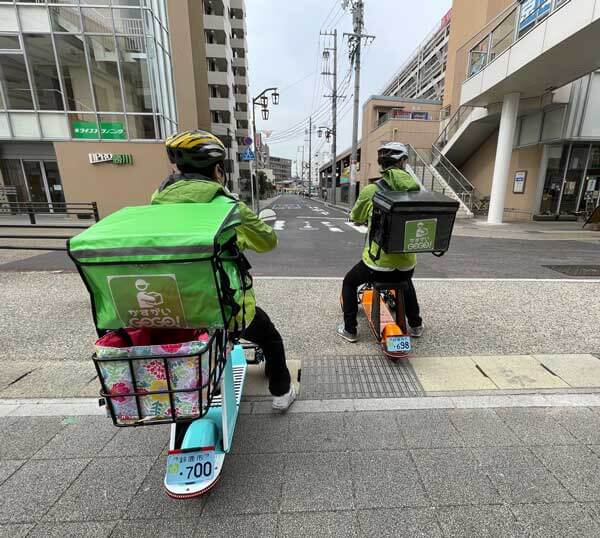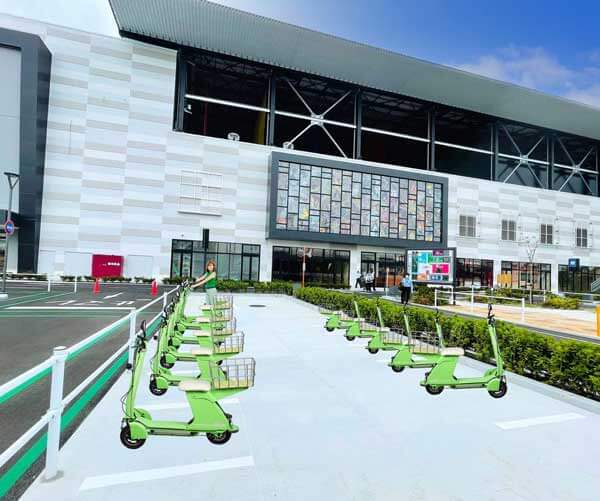Enriched lifestyles realized through community-aligned service design
Daiwa House Industry Co., Ltd. × KMD “New Mobility Services for Shopping Mall in Community”
In Real Project ITOMA (“leisure”), KMD students conduct fieldwork on the current state of diverse economic activities in modern society and culture, and engage with service design to realize enriched lifestyles. Under Project Director/Senior Assistant Professor Chihiro Sato, ITOMA aims to design services that are more aligned in the field through the iterative processes of ethnography, analysis, design, and prototyping.
KMD conducted a joint research project with Daiwa House Industry Co., Ltd. towards the operational launch of new mobility service at “iias Kasugai,” a shopping mall which opened in Kasugai City, Aichi Prefecture in 2021 autumn. Jun Murata from Daiwa explains the rationale behind the design of this project: “Reflecting the aging society and challenges for post-COVID era, we wanted to provide an opportunity to contemplate the flow of people and commodities in shopping malls.” Project Professor Keiko Ihara(CEO, Future Inc.), the mobility expert at KMD supervised the development of electric vehicles and cloud-based systems from the perspectives of regional revitalization, decarbonization, and the digital transformation of localities, alongside the residents of Kasugai City and those from commerce and industry. In advance of the mall’s opening, KMD students conducted a service demonstration experiment which focused on food delivery and mobility sharing.
During the experimental phase, students conducted fieldwork in Kasugai City, by accompanying product
deliveries to interactively experience the service processes, and gather feedback of citizens. “While we refer to this as ‘apprenticeship,’ what matters most is intimately acquainting ourselves within the field in depth, including building trust,” says Project Director Sato. ITOMA takes on responsibility for the entire process, from investigating what improvements are needed and incorporating them into sustainable service design rather than just creating them.
Particularly in rural areas, it is not easy to get people to accept advanced digital systems, and thus imperative to dedicate time to changing the mindsets of local citizens. Mr. Murata continues: “I would like to work with KMD students, who have multifaceted perspectives, to engage in initiatives that will ultimately feed into the planning of livable cities through MaaS (Mobility as a Service).” How can we go beyond the laboratory environment and contribute to the happiness of those in our immediate sphere? ITOMA will continue to contribute to community-aligned service design on the long run based on the policies of this Real Project.
(This article was written in March 2022.)

